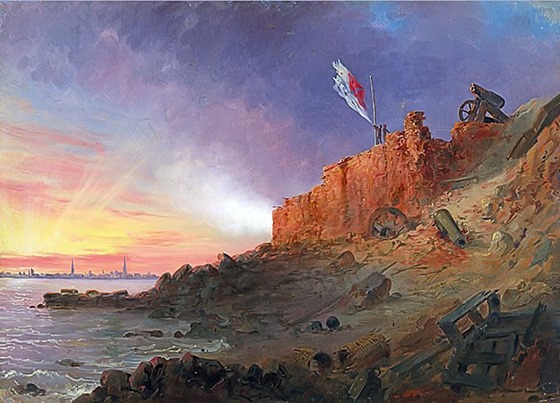December 31st.—The last day of the year. Snowing and wet.
Gen. H. Cobb writes that the existing Conscription Bureau is a failure so far as Georgia, Alabama, etc. are concerned, and can never put the men in the field.
Wm. Johnston, president of the Charlotte (N. C.) and South Carolina Railroad, suggests the construction, immediately, of a railroad from Columbia, S. C., to Augusta, Ga., which might be easily accomplished by April or May. It would take that length of time for the government to “consider of it.” It will lose two railroads before it will order the building of one.
There is supposed to be a conspiracy on foot to transfer some of the powers of the Executive to Gen. Lee. It can only be done by revolution, and the overthrow of the Constitution. Nevertheless, it is believed many executive officers, some high in position, favor the scheme.
To-morrow Gen. Lee’s army is to be feasted with turkeys, etc. contributed by the country, if the enemy will permit them to dine without molestation. The enemy are kept fully informed of everything transpiring here, thanks to the vigilance of the Provost Marshal, detectives, etc. etc.
Gen. Cobb writes that he is arresting the men who remained in Atlanta during its occupation by Sherman, and subjecting themselves to suspicion, etc. Better march the men we have against Sherman now, who is still in Georgia!
Gen. Lee writes that Grant is concentrating (probably for an attack on Richmond), bringing another corps from the Valley; and if the local troops are brought in, he does not know how to replace them. His army diminishes, rather than increases, under the manipulations of the Bureau of Conscription. It is a dark and dreary hour, when Lee is so despondent!
Senator Henry writes that any delay in impressing the railroad from Danville to Greensborough will be fatal.











